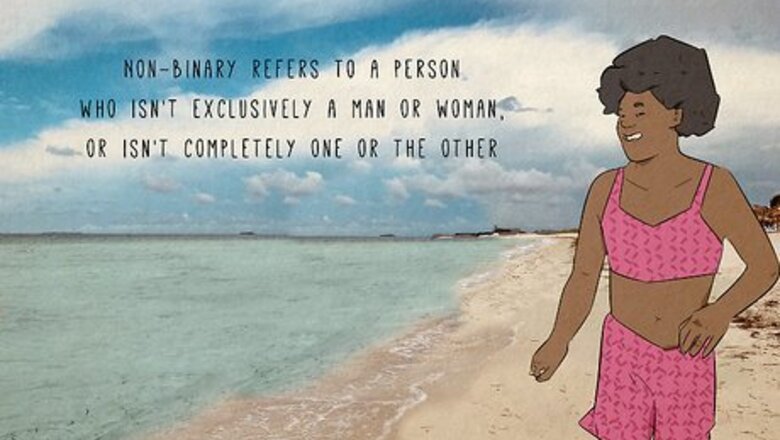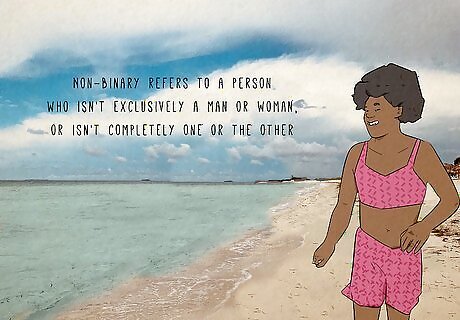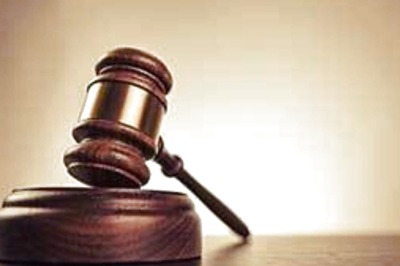
views
Understand what non-binary means.

Non-binary refers to a person who isn't exclusively a man or woman, or isn't completely one or the other. They may fluctuate between the two or instead fall somewhere in between. For example, agender people, who have no gender at all, may also consider themselves non-binary.
Understand what pronouns a non-binary person uses.

Ask what pronouns they use. Many non-binary people use they/them pronouns, but others prefer neopronouns such as xe/xem, and some are happy with binary pronouns like she/her or he/him. Some people use multiple pronouns, such as she/they. Always ask for their pronouns, because you can never tell just by looking at someone. If you don't know the person's pronouns and can't ask them about it, using they/them/theirs is a good option until you can ask. You probably shouldn't ask someone's pronouns in the middle of the group, but instead, wait for an opportunity to pull them aside and ask. Don't refer to a nonbinary or trans person as "it" unless they tell you to. It is typically considered dehumanizing to speak about a person as if they are an object.
Respect their pronouns.

Do not use their birth pronouns unless you are asked to, as this can be distressing. Call them by the pronouns that they now use. If you slip up and call them by the wrong pronouns, just correct yourself, and move on. Don't draw too much attention to the fact. For example, if you slip up and accidentally call your friend "he," just correct yourself and continue what you were saying. Try not to apologize for using the wrong pronouns. Although it may seem like a nice way to correct yourself, it might make the person feel like they're a burden to you. Instead of saying something like "We went to the party and we saw her.. sorry! their-," just quickly correct yourself and move on, like this: "I was talking to her--them--and they said they had a dog." You've probably used the wrong pronouns on a cisgender person before. You might've been having a regular conversation and accidentally referred to a guy as 'she', or the other way round. Usually you just laugh it off and correct yourself when that happens, so treat it the same way. Pronoun usage is not dependent on whether you're happy with the person at the moment. Don't intentionally use the wrong pronouns or name in order to upset the person, as that will harm your relationship and may harm them far more than you intended.
Use their preferred name.

If they choose to change their name assigned at birth to another name, respect this choice and call them by that name. Don't ask questions like, "What is your birth/deadname?" or, "What's your real name?" The name they choose to use is their real name, and it shouldn't be questioned.
Pick suitable nicknames for them.

Use gender neutral nicknames, for example "bestie", "mate", "partner" (if in a relationship), "princus/prinxe" (gender neutral for princess/prince), "auncle" (gender neutral for aunt/uncle), "datemate", "cuddle buddy", "buddy", "sweet/sweetheart", "Enbyfriend", etc. Ask them what nicknames they like. Some non-binary people may be uncomfortable with some gender-neutral variants of usually gendered nicknames, such as enbyfriend and kissmate. Some non-binary people are actually fine with gendered nicknames. Make sure you ask before using them though. Remember that if your friend/partner is ok with being called a 'boyfriend' or 'bro', it doesn't make them any less valid. If you can't find a way to ask, there are some basics that almost everyone is ok with like friend, partner, lover, and bestie.



















Comments
0 comment